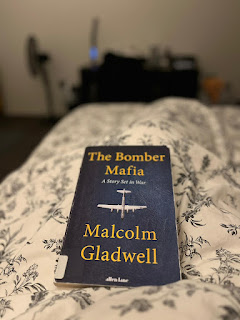I always like Malcolm Gladwell's books. I have read most of his books and listened to his podcast before.
I guess part of the reason is I love psychology. Gladwell is a psychologist who can communicate profound psychology concepts in a simple way. He is a great story teller, I can read his writings effortlessly. The way he knits together complicated concepts, making reading so much enjoyable.
Gladwell is always exploring a different perspective to a common problem. I love how he is able to open a brand new horizon for me to see things differently. Unfortunately, his books have indirectly precipitated my break up back in 2019. It was the time when I read a few of his books, and was pushed to re-evaluate the relationship I had.
I wanted to read this book earlier on last year. However, I did not want to invest the money to buy one because it most likely will remain in my shelf for life after I finish it once. At last, I got it from the local library.
Unsurprisingly, Gladwell takes another angle to view at Word War 2. I love history and am interested in the wars, but not too interested until reading tons of books about world wars. Nonetheless, I would say I am pretty good at them. Movies like Pearl Harbour, Dunkirk, Midway and The Imitation Game gave me some insights about the war as well.
The Bomber Mafia can be like one of the movies too. It is a section of the World War history. While I always thought the Japanese only decided to surrender after the two atomic bombs (the Allied threatened to drop the third), Malcolm showed me it might not be necessary to drop the atomic bombs.
Of course, the main issues explored in the book are not about events that happened. It is about the mindsets of two Air Force Generals. The strategies and principles they upheld during the war.
Another interesting point to note is, Malcolm uses the analogy of the temptation of Jesus to illustrate the different mindsets of the two Generals. Would you give up your principles to achieve a faster result, or you will not give in to temptations. The one at stake here is the numerous lives of civilians.
That is Malcolm Gladwell.

.jpeg)
